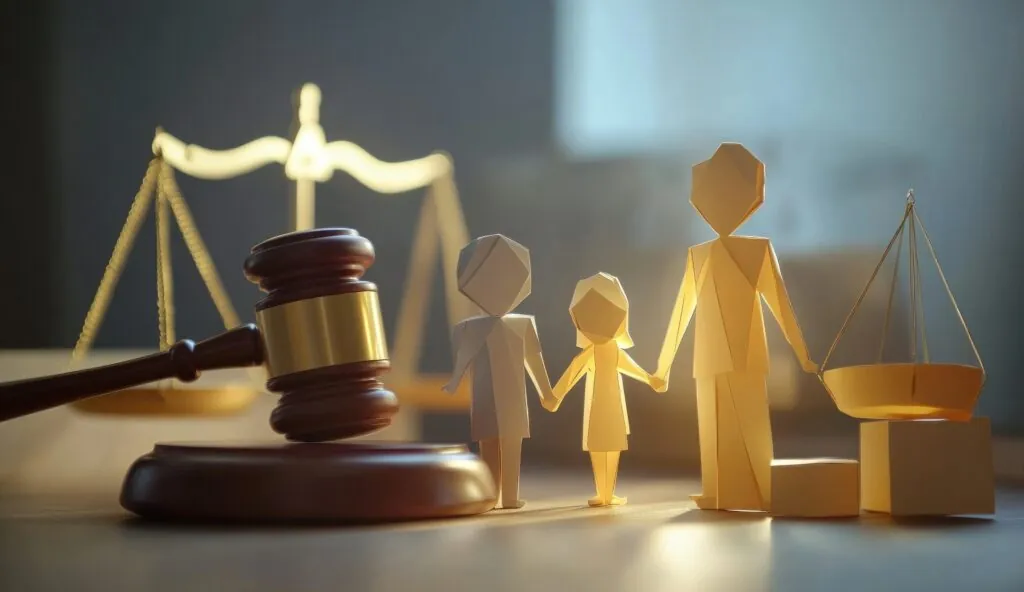When Recovery Means More Than Medicine
When a child is injured—whether in a car crash, a bus accident, or a devastating fire—the trauma goes far beyond the emergency room. There’s the pain of recovery, the challenge of navigating the healthcare system, the disruption to schooling and development, and the emotional toll on both the child and their family. Too often, parents are left not only grieving and overwhelmed but also trying to figure out how to get their child the care and support they need—especially if they lack insurance or are unfamiliar with what their child is legally entitled to at school.
Yes, We're Lawyers—But We're Also Advocates
Yes, we are lawyers. And yes, we fight for justice in the courtroom. But in many of our cases involving injured children, our role quickly becomes much broader. We don’t just pursue financial compensation—we help build a path forward. We help families access medical care, even when they’re uninsured. We advocate for IEPs and educational support when children’s injuries impact their learning. We ensure that families have not only representation, but real resources. Because in cases like these, winning a settlement isn’t enough. What really matters is giving these kids a chance to heal, grow, and thrive.
When the System Leaves Families Behind
We’ve represented children with traumatic brain injuries, spinal cord injuries, and severe burns. Each injury brings its own set of complications, and no two children are alike. But one common thread we’ve seen is how quickly families can feel abandoned by the system. Hospitals stabilize the child and discharge them. Insurance companies look for ways to deny coverage. Schools don’t always recognize the signs that a child needs individualized educational support. And parents—who are often still processing the trauma themselves—are left trying to play case manager, advocate, and full-time caregiver, all at once.
One Boy, One Brain Injury, One Turning Point
One young boy we represented had suffered a traumatic brain injury in a car accident. His mother had no idea how serious the long-term implications could be. She didn’t know that the injury could affect his ability to focus, regulate his emotions, or keep up in school. The school didn’t either. It wasn’t until we helped her connect with one of the country’s top pediatric neurologists that everything started to make sense. With his expert evaluation, we were able to help the family not only get the boy into a proper rehabilitation program, but also initiate the process of securing an Individualized Education Program (IEP) at school. That IEP gave him access to special accommodations, therapy services, and classroom support that made an enormous difference in his academic recovery.
Helping Uninsured Children Get Urgent Care
In another case, we represented a group of young girls who suffered spinal and brain injuries in a bus crash. Several of them had no health insurance. Their families didn’t know where to turn for specialized care. We stepped in and found highly qualified medical providers willing to treat them on a lien basis—essentially agreeing to provide care with the understanding that payment would come once the legal case resolved. This allowed the girls to begin necessary treatment immediately, rather than waiting months or years while the case moved through the courts. We also coordinated with their schools to ensure they were evaluated for special education services, counseling, and tutoring—services that helped them stay on track during one of the most difficult periods of their lives.
Third-Degree Burns and Long-Term Needs
We also worked with a young girl who had sustained third-degree burns. Beyond the physical pain and medical complexity of treating severe burns, her injuries presented another long-term challenge: growth. Scar tissue doesn’t grow like regular skin, and as her body changed, she would need repeated surgeries to release the tightening of her skin. Her family was uninsured and had no idea how to find a surgeon who could handle this level of care. Through our network, we found a leading pediatric plastic surgeon who agreed to evaluate and treat her. We also worked behind the scenes to ensure her school understood her situation—both medically and emotionally—so that her teachers could offer support and accommodations in the classroom.
The Quiet Work That Changes Lives
These are the parts of our work that the public rarely sees. The courtroom drama may get the headlines, but the quieter, behind-the-scenes work—helping a family navigate insurance bureaucracy, connecting them with top specialists, ensuring their child gets an IEP—is where we believe our impact is most profound.
Looking Beyond the Legal File
We see ourselves not just as attorneys, but as advocates. Our clients are not just “cases”—they are children who deserve every possible chance to recover, develop, and participate in life fully, despite what they’ve been through. And that means thinking beyond the legal file. It means asking: Does this child have the right doctors? Is she being supported in school? Do her parents know what resources are available? Who’s fighting for the whole picture?
Compensation Matters—But So Does Dignity
Of course, there are limits to what any law firm can do. We aren’t doctors, and we don’t run schools. But we know how to open doors. We know how to build networks of care around a child. And we know how to use our position as advocates to demand more—not just in terms of compensation, but in terms of dignity, opportunity, and future possibility.
What Happens After the Lawsuit Matters Most
That’s the standard we hold ourselves to. Because for an injured child, what happens after the lawsuit is just as important as what happens during it. That child has to live with the consequences of their injury every single day—physically, mentally, and emotionally. If we can use our knowledge, resources, and experience to make that road even slightly smoother, then we believe we’re doing our job the right way.
So when families come to us, we listen. We learn their story. We map out not just the legal strategy, but the human one. And we do everything in our power to make sure that when a child is injured, they are not left behind. Because every child deserves a future filled with possibility—and sometimes, that future starts with a phone call to someone who refuses to see them as just another case.
About Aron Solomon
A Pulitzer Prize-nominated journalist for his groundbreaking op-ed in The Independent exposing the NFL’s “race-norming” policies, Aron Solomon, JD, is a globally recognized thought leader in law, media, and strategy. As Chief Strategy Officer for AMPLIFY, he leverages his deep expertise to shape the future of legal marketing. Aron has taught entrepreneurship at McGill University and the University of Pennsylvania and was honored as a Fastcase 50 recipient, recognizing him among the world’s top legal innovators. A prolific commentator on law, business, and culture, his insights regularly appear in Newsweek, The Hill, Crunchbase News, and Literary Hub. He has also been featured in The New York Times, Fast Company, Fortune, Forbes, CBS News, CNBC, USA Today, ESPN, TechCrunch, BuzzFeed, Venture Beat and countless other leading global media outlets.


